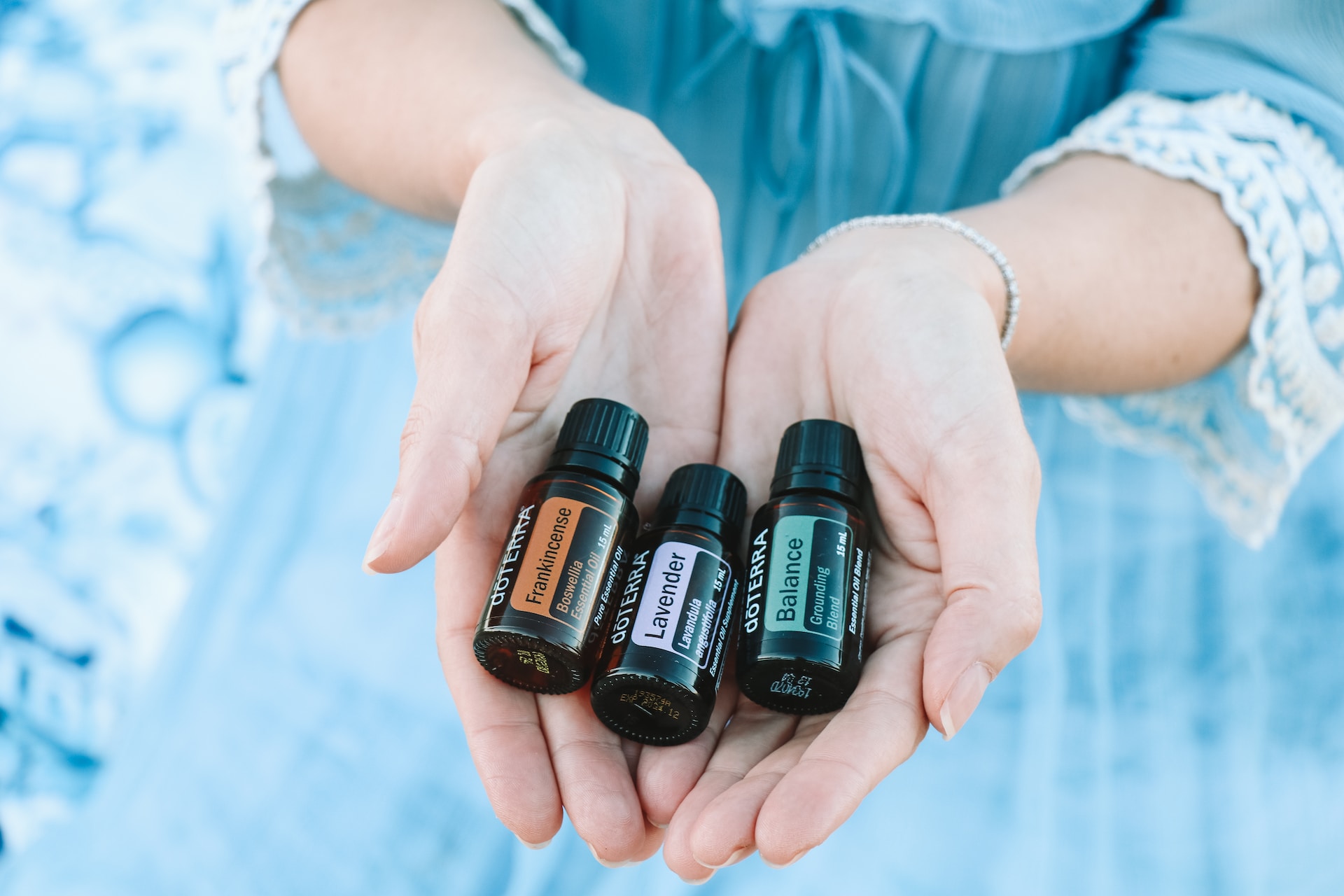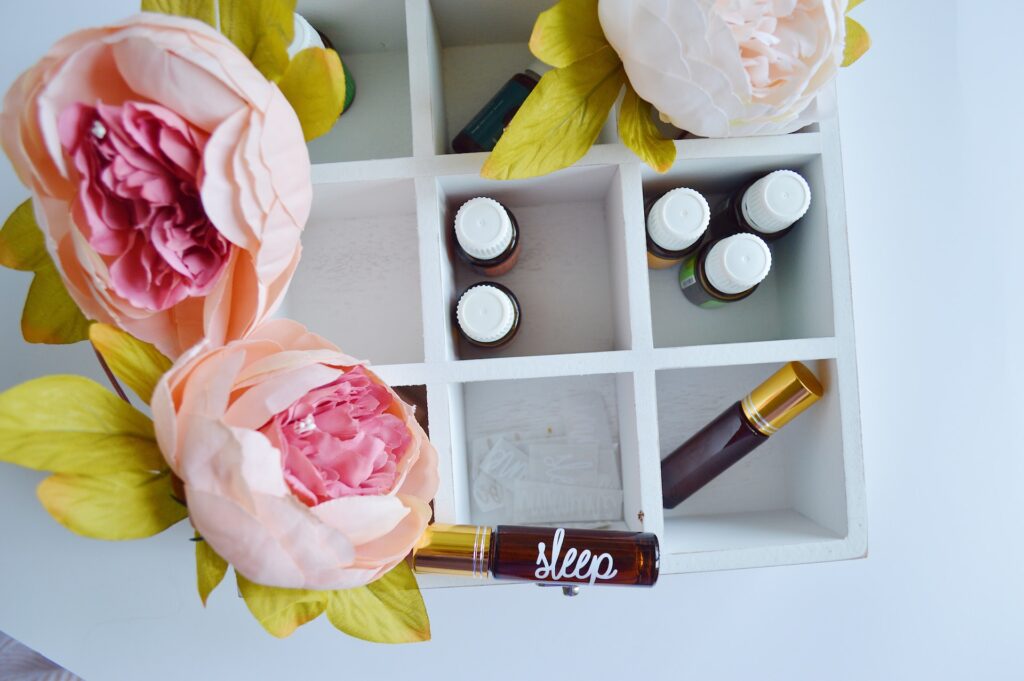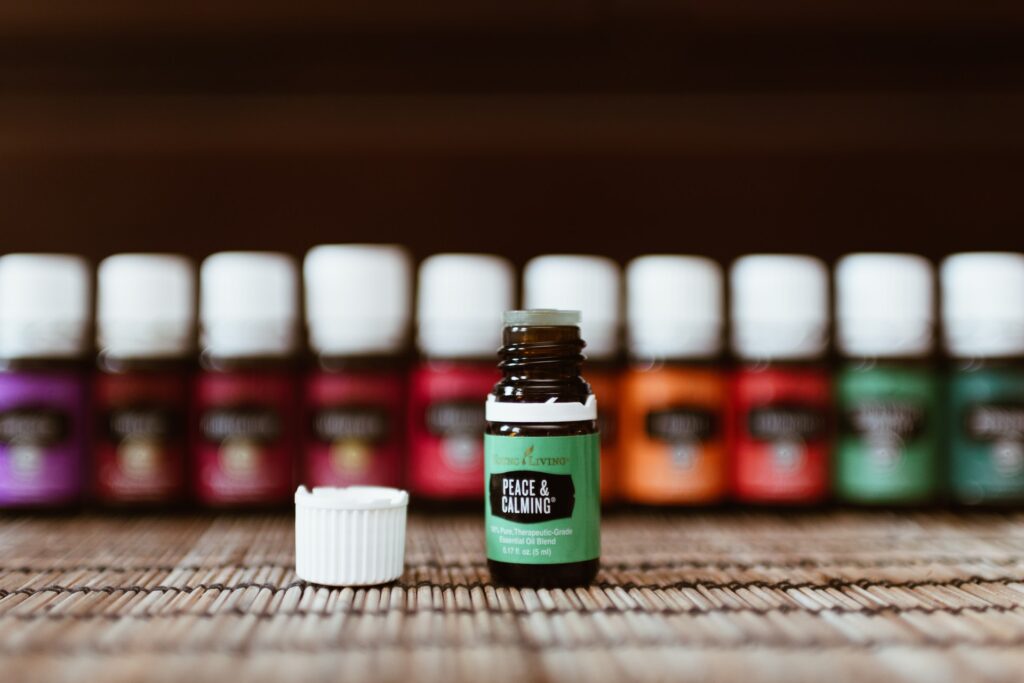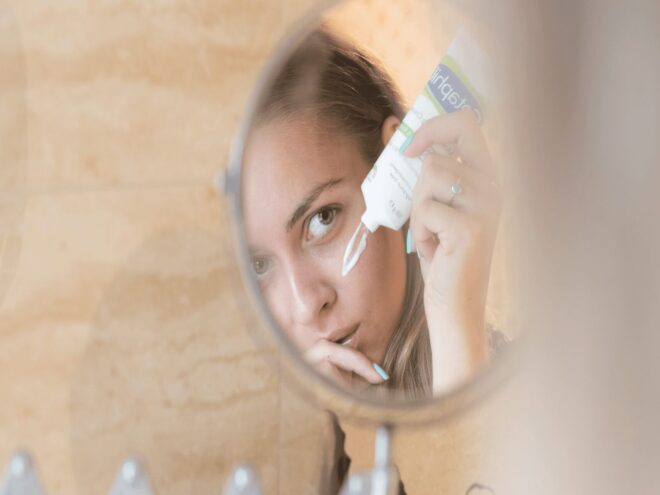Wellness • 01/26/2024
Best Essential Oils for Skin: 9 Must-Try Oils for Radiance

Revivalist is a reader-supported endeavor and our posts may contain affiliate links. When you buy through links on our site, we may earn an affiliate commission.
Essential oils have become popular additions to people’s skin care routines and for good reason. These concentrated plant extracts offer several benefits for the skin, from moisturizing and rejuvenating to soothing and healing. Packed with vitamins, antioxidants and other skin-loving compounds, essential oils have the power to transform your skincare routine.
How Do Essential Oils Benefit Skin?
People use essential oils for their skin for various reasons. They’re rich in natural compounds that can provide numerous skin benefits, like moisturizing, anti-aging properties and soothing effects. These oils often contain antioxidants, vitamins and anti-inflammatory agents that promote healthy and radiant skin.
Many individuals turn to essential oils to address specific skin concerns, including acne, dryness, fine lines and uneven skin tone, as these oils can provide targeted solutions. Moreover, the pleasant aromas of essential oils can enhance the overall skin care experience.
9 Best Essential Oils for Skin
Different essential oils provide different benefits, depending on your skin type and unique goals. Here are nine of the best essential oils for skin:
1. Lavender Oil
Lavender oil is a versatile option for all skin types. It’s renowned for its calming and soothing properties, making it ideal for sensitive or irritated skin. Lavender oil can help reduce redness, calm inflammation and promote a more even skin tone. Its antimicrobial properties also make it useful for acne-prone skin, as it can help prevent and heal blemishes.

2. Tea Tree Oil
Tea tree oil is a potent essential oil with strong antibacterial and antifungal properties. It’s a go-to choice for acne-prone skin, as it can effectively combat acne-causing bacteria. Be cautious, though, as tea tree oil can be quite strong and you should dilute it before applying it to the skin. Mix a few drops with a carrier oil to avoid any potential irritation.
3. Rosehip Seed Oil
Rosehip seed oil is rich in essential fatty acids, vitamins and antioxidants that promote healthy and youthful skin. It’s known for reducing the appearance of scars, fine lines and wrinkles. This oil is an excellent choice for dry and aging skin, as it deeply moisturizes and improves skin elasticity.
4. Frankincense Oil
People have used frankincense oil for centuries in skincare. It has powerful astringent properties that help tighten and tone the skin, reducing the appearance of pores. Additionally, it can promote the regeneration of skin cells, making it an excellent choice for improving skin texture and reducing the signs of aging.
5. Chamomile Oil
Chamomile oil, whether from German or Roman chamomile, offers calming and anti-inflammatory properties. It can help soothe irritated, red or sensitive skin. Chamomile oil is also an excellent option for those with conditions like eczema or rosacea.
6. Ylang Ylang Oil
Ylang Ylang essential oil is prized for its hydrating properties and ability to balance sebum production. You can use it on both dry and oily skin types. Its sweet, floral scent also provides aromatherapy benefits, reducing stress and anxiety.
7. Geranium Oil
Geranium oil is a natural astringent, making it beneficial for balancing oily skin and reducing the appearance of large pores. It also regulates sebum production, making it an excellent option for those with combination skin.
8. Carrot Seed Oil
Carrot seed oil is rich in antioxidants and vitamins, particularly vitamin E. This oil is known for rejuvenating and stimulating skin cell regeneration. It can reduce the signs of aging, improve skin tone and protect against environmental damage.
9. Neroli Oil
Neroli oil is derived from the blossoms of bitter orange trees. It’s renowned for its ability to improve skin elasticity, reduce the appearance of scars and promote a glowing complexion. Its uplifting fragrance can also enhance your mood.

How to Use Essential Oils for Your Skin
- Dilution: Essential oils are highly concentrated and you should only apply them directly to the skin after diluting them. Always dilute them with a carrier oil – like coconut, jojoba or almond oil – before applying to your skin. A common dilution ratio is 25 drops of essential oil per 15 ml of carrier oil, but this can vary depending on the specific essential oil and your skin’s sensitivity.
- Patch test: Before applying any new essential oil to a larger area of skin, perform a patch test. Apply a small amount of the diluted oil on a small area of your skin, like your inner wrist or elbow, and wait 24 hours to ensure you don’t experience any adverse reactions. Possible reactions could include redness, itching, burning or irritation.
- Sensitive areas: Be cautious when using essential oils on sensitive areas of your skin, such as the face or genital area. Always use a well-diluted solution and avoid getting the oils in your eyes, nose or mouth.
- Sun sensitivity: Some essential oils, like citrus oils (e.g., lemon or orange), can increase your skin’s sensitivity to UV rays. Avoid sun exposure for at least 12-24 hours after applying these oils to your skin.
- Acne-prone skin: If you have acne-prone skin, be extra cautious. While some essential oils can help with acne, others can exacerbate the condition. Common acne-friendly essential oils include tea tree, lavender and chamomile.
- Face application: When applying essential oils to your face, consider adding a drop or two to your moisturizer or a carrier oil. Gently massage the mixture into your skin. Be mindful of the eye area and avoid getting any oil in your eyes.
- Body application: For the body, you can mix essential oils with a carrier oil and apply them to dry or clear skin. Massage the mixture in for an even distribution. Using essential oils this way can be especially soothing for sore muscles.
- Custom blends: You can create custom blends by mixing different essential oils to target specific skin concerns. Always research the properties and potential interactions of the oils you’re combining.
- Discontinue use if irritation occurs: If you experience any irritation or adverse reactions when using oils on your skin, discontinue use immediately and wash the affected area with mild soap and water.

Take Care of Your Skin Naturally
Essential oils have become a beloved addition to skincare routines worldwide. However, it’s crucial to use them with care. These nine essential oils offer a broad spectrum of benefits for your skin and incorporating them into your routine can help you achieve radiant, healthy skin. Whether you have dry, oily, sensitive, combination or aging skin, there’s an essential oil to suit your needs. Experiment, find your favorites and let these natural treatments enhance your skincare regimen.
Subscribe to Our Weekly Newsletter
We would love to connect deeper with you!


